
Allentown, PA Car Accident Lawyers: A Comparative Guide
Finding the Right Legal Support After an Accident If you're searching for Allentown Pennsylvania car accident lawyers, you likely need...

Your Guide to Finding a Car Accident Attorney in Harrisburg
Navigating the Aftermath of a Car Accident in Harrisburg If you've been involved in an accident and need a harrisburg...

Harrisburg Car Injury Attorneys: Your Guide to Legal Success
Why a Harrisburg Car Injury Attorney is Essential After Your Accident If you've recently been injured in a Harrisburg car...
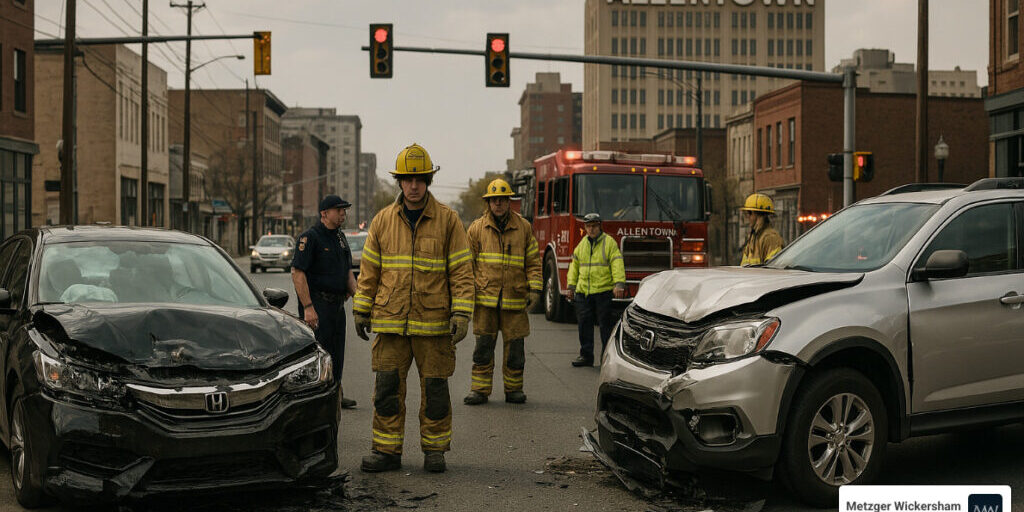
Crash Course: Choosing the Right Allentown Car Accident Lawyer
Why Hiring an Allentown Car Accident Lawyer Matters If you've recently been hurt in a car accident and need quick...
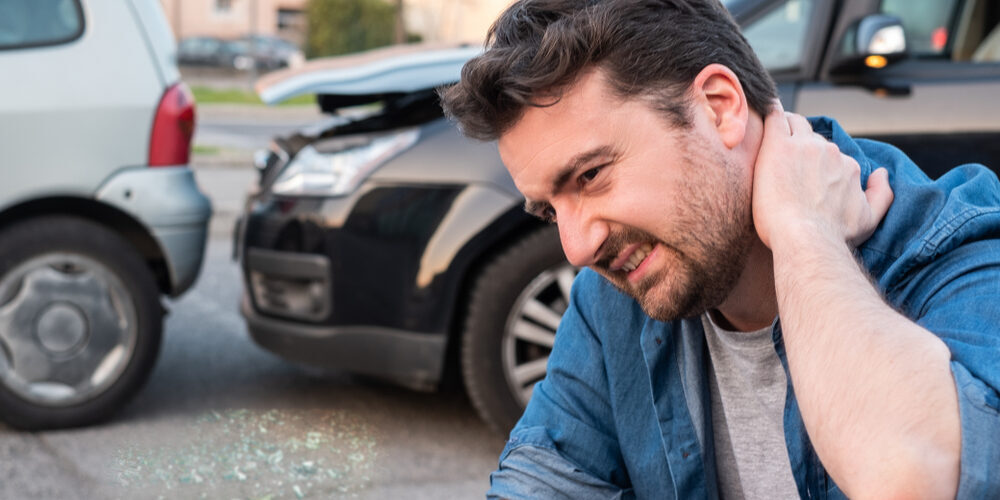
Legal Lifelines: Navigating Car Accident Advice
When Life Takes a Sudden Turn: Car Accident Legal Advice Car accident legal advice is crucial immediately after a crash....
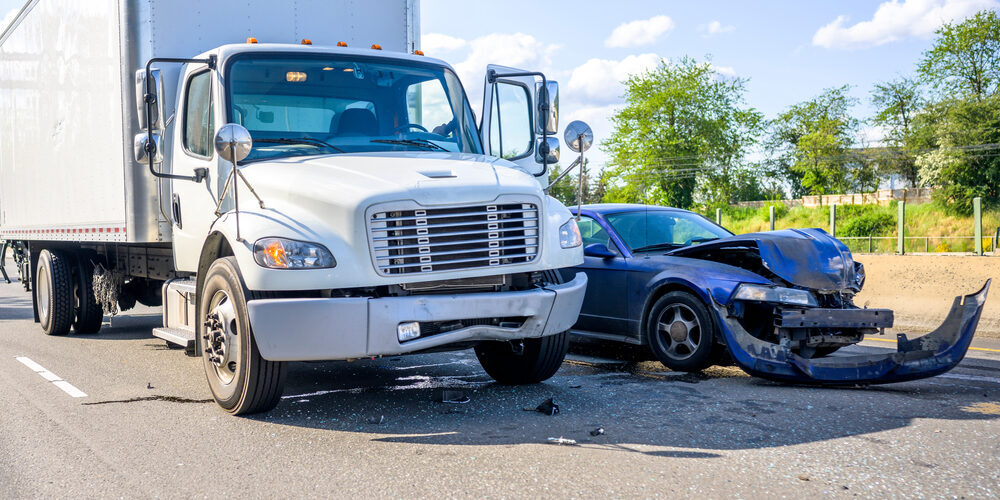
Step-by-Step Guide to Finding a Truck Accident Lawyer in Harrisburg
If you're looking for a truck accident lawyer harrisburg, you want prompt and effective legal representation to secure the...
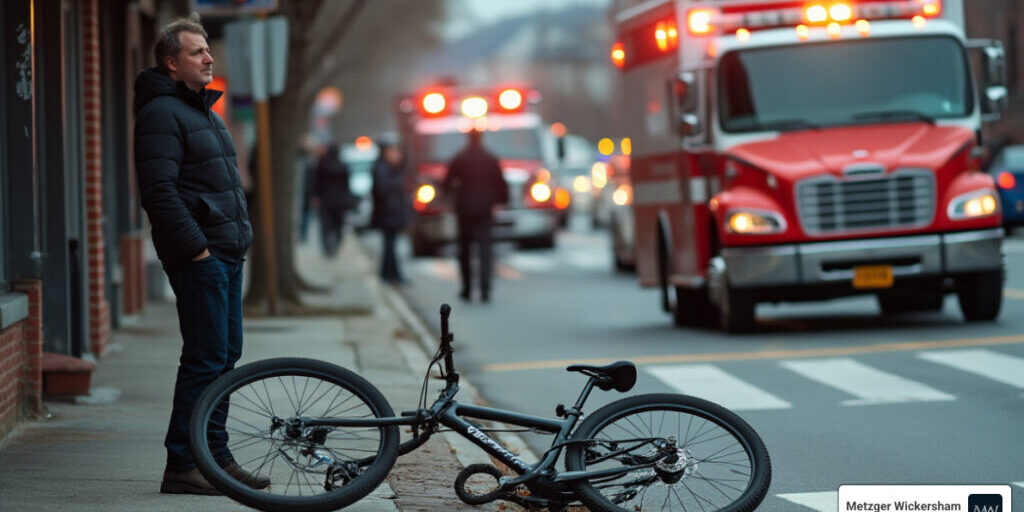
Harrisburg Bike Accident Lawyers: Paving the Way to Justice
In the busy streets of Harrisburg, cyclists face various risks every day. Harrisburg bike accident lawyer services are crucial...
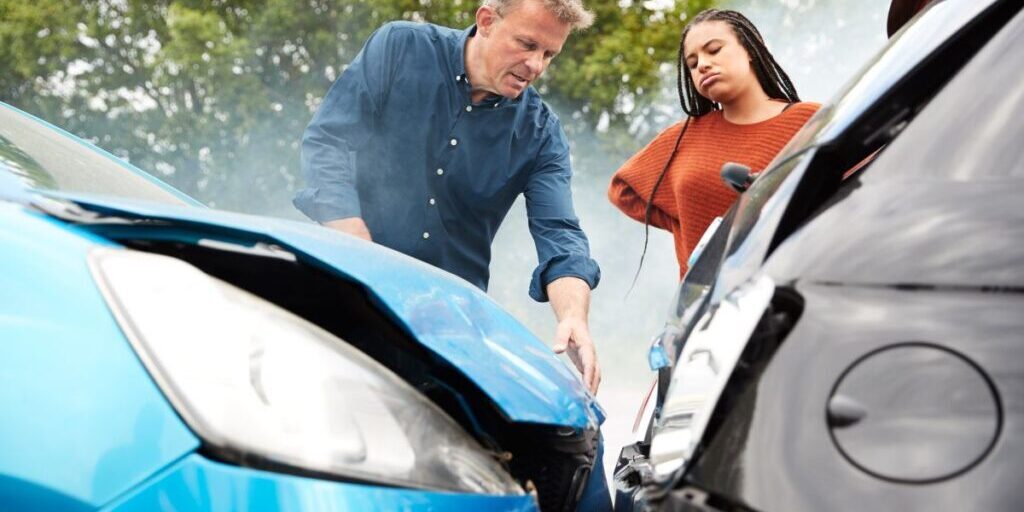
Your Neighborhood Guide to Car Accident Injury Lawyers
When you're unexpectedly involved in a car accident, it feels like your world has turned upside down. The immediate...

Securing Legal Representation for Truck Accidents: A Comprehensive Guide
Truck accident legal help is crucial if you're seeking justice after a severe collision. Whether you're overwhelmed by the...
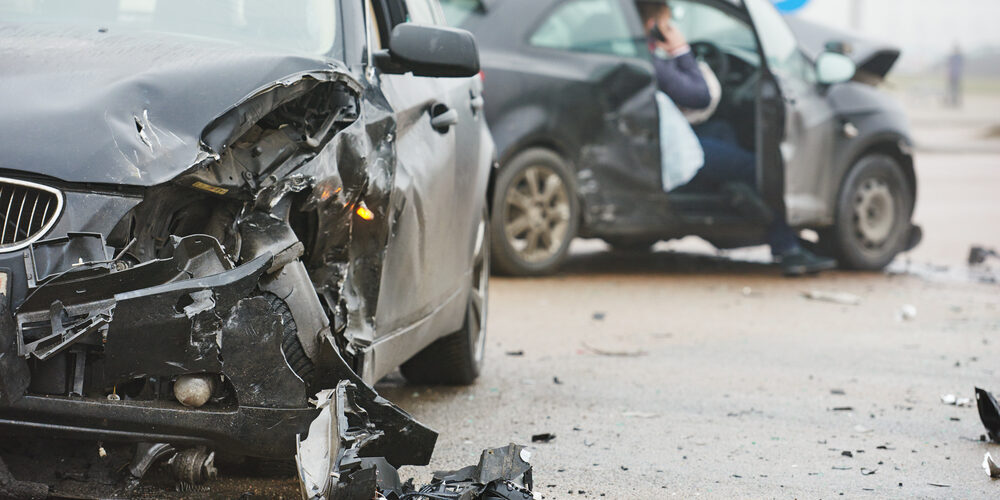
Your Guide to Finding a Nearby Auto Accident Attorney
Auto accident lawyer near me. Navigating through the aftermath of a car accident can be overwhelming, especially when dealing...
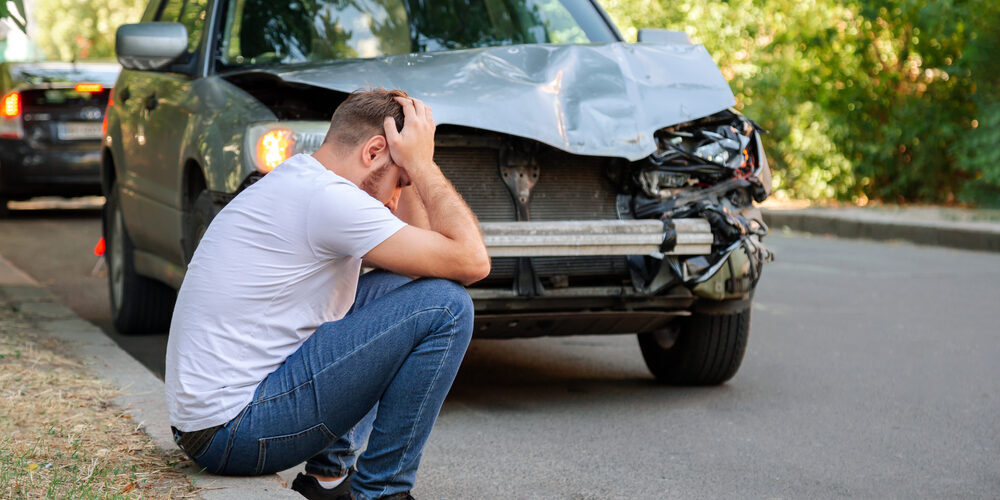
In the Driver’s Seat: Choosing a Motor Vehicle Accident Lawyer in Philadelphia
Motor vehicle accident attorney philadelphia pa services are crucial for anyone involved in a car accident, which can turn...

Close to Home: Choosing a Personal Injury Lawyer for Medical Malpractice
Searching for a personal injury lawyer near me for medical malpractice means you need immediate, local support to handle...
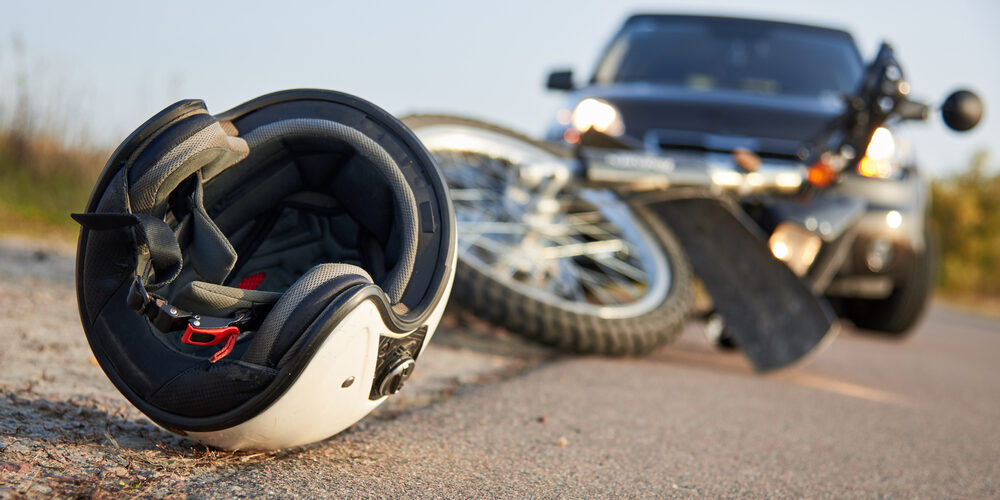
Harrisburg Motorcycle Accident Lawyers: Steering You Towards Justice
Harrisburg motorcycle accident lawyer assistance can be crucial after a crash, especially when you're overwhelmed by medical bills and...
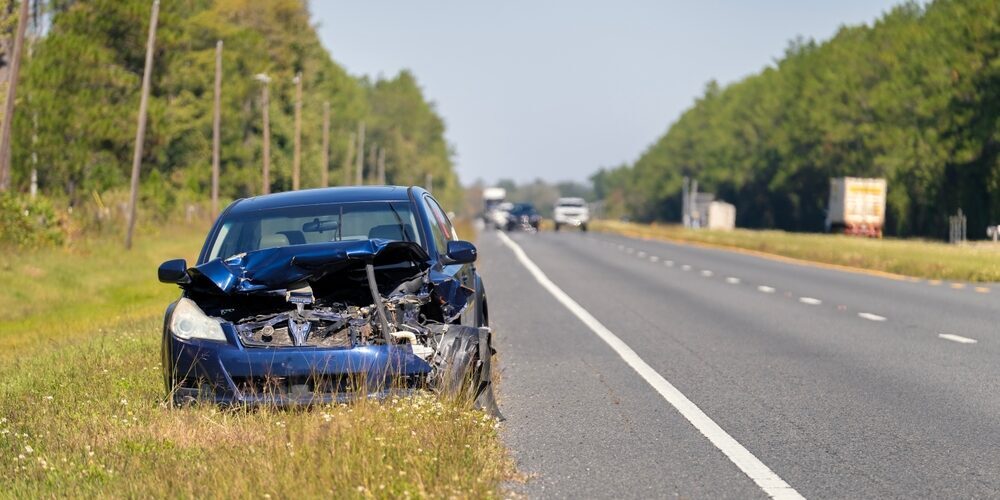
The Road to Recovery: Legal Advice for Auto Accident Insurance Claims
When faced with the aftermath of a car accident, auto accident insurance attorney help is often crucial in navigating...

The Ultimate Guide to Harrisburg Injury Attorneys: What You Need to Know
Harrisburg injury attorney services can be your lifeline when facing the aftermath of an accident. Whether you're dealing with...
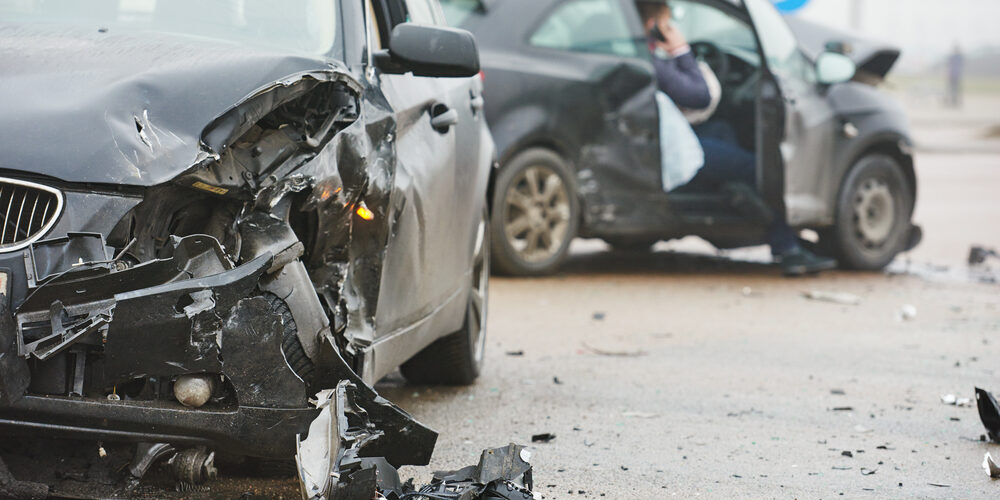
What to Do After a Car Crash: Your Legal Guide
When a car crash disrupts your life, understanding the right steps to take can feel overwhelming. Car crash legal...

Steering Through Legal Challenges: Top Car Accident Attorneys in Wilkes-Barre
Car accident attorney Wilkes-Barre is your first step toward regaining control after an unexpected crash. If you’ve been involved...

From Diagnosis to Defense: Finding a Lawyer for Doctor Negligence
Lawyers that sue doctors for negligence stand as crucial allies when medical care turns into a source of harm...

Navigating Medical Neglect: How to Choose the Best Attorney
Medical neglect attorneys are your allies in seeking justice when healthcare goes wrong. If you've experienced medical negligence, understanding...

Finding the Best: Top Rated Malpractice Lawyers Near Me
Top rated malpractice lawyers near me can make a significant difference when dealing with the aftermath of a medical...

Your Guide to Finding Local Medical Malpractice Law Firms
Malpractice law firms near me are essential resources for individuals who find themselves navigating the intricate waters of medical malpractice...

Nearby Medical Lawsuit Lawyers: How to Choose the Right One
Finding medical lawsuit lawyers near me can be a crucial step for individuals who have suffered due to medical malpractice....

Winning Your Brachial Plexus Injury Lawsuit: A Step-by-Step Guide
A brachial plexus injury lawsuit can help families find justice when birth injuries occur due to medical negligence. These...

From Botched to Better: Legal Help for Surgery Gone Wrong
If you're seeking botched surgery lawyers, you're probably dealing with the aftermath of a surgical procedure gone wrong. The...

Eye-Opening Legal Advice: Navigating Malpractice Claims
Navigating the intricate field of eye surgery requires meticulous care, precision, and adherence to medical standards. Specialized procedures like...

When Surgery Goes South: Understanding Your Legal Options
Searching for a surgery malpractice lawyer? Here’s what you need to know: Surgical Errors: Mistakes during surgery that can...

Plastic Surgery Gone Wrong? Here’s How a Lawyer Can Help
If you're searching for a plastic surgery lawyer, here's what you need to know: Filing a Lawsuit: You may...

Doctor Malpractice Dilemmas: A Guide to Finding the Right Lawyer
When faced with doctor malpractice, finding an attorney for doctor malpractice is crucial for navigating the legal complexities and...

The Complete Guide to Finding a Medical Malpractice Lawyer
When you're looking for a medical malpractice lawyer, it’s crucial to understand how they can help you steer the complex...

Disability Lawyers Decoded: Your Path to Legal Assistance
A disability lawyer can be your greatest ally when navigating the labyrinth of Social Security Disability (SSD) claims. If you're...

Navigating the Legal Maze: How to Choose a Local Medical Malpractice Attorney
Finding a local medical malpractice attorney can be the difference between navigating the legal system efficiently or feeling lost amidst...

Good Malpractice Lawyers: Navigating Your Legal Journey
Good malpractice lawyers are essential in guiding you through the challenging legal landscape of medical malpractice claims. They ensure that...

Why You Need a Truck Accident Lawyer in Lancaster After a Collision
Truck accidents can be devastating, often resulting in severe injuries, extensive property damage, and complicated legal claims. If you or...

Cosmetic Surgery Malpractice Lawyers: The Key to Unlocking Your Case
When considering cosmetic surgery, patient safety should be a top priority. However, if you find yourself struggling with unforeseen complications,...

What to Do After a Motorcycle Crash: Advice from a Pottsville Motorcycle Accident Lawyer
Motorcycle accidents can be devastating, leaving riders with severe injuries, costly medical bills, and a long road to recovery. If...

How Much Is My Auto Accident Claim Worth? An Auto Accident Lawyer in Harrisburg Explains
If you’ve been injured in a car accident, you may be wondering how much your claim is worth. The reality...

Paying Taxes on Workers’ Compensation Benefits
- by Metzger Wickersham Attorney Craig Love Under Pennsylvania law, workers’ compensation benefits are tax free. 26 U.S. Code §104(a)(1)...

The Importance of Hiring a Local Motorcycle Accident Lawyer in York
Motorcycle accidents can have life-changing consequences, and if you’re a victim in York, Pennsylvania, it’s crucial to have the right...

A Guide from an Injury Lawyer in Williamsport: Immediately After an Accident
Being involved in an accident, whether it’s a car crash, slip and fall, or workplace injury, can be overwhelming and...

Wilkes-Barre Motorcycle Accident Attorney: The Legal Process of Filing a Lawsuit
Motorcycle accidents can result in severe injuries, financial strain, and emotional stress. If you've been involved in a motorcycle crash...

Top 5 Reasons to Hire a Personal Injury Lawyer in Shippensburg
If you’ve been injured in an accident in Shippensburg, whether it’s a car crash, a slip and fall, or a...

What to Do if You Suspect Nursing Home Abuse: A Lancaster Nursing Home Abuse Lawyer’s Guide
If you have a loved one living in a nursing home, the last thing you want to imagine is that...

What to Expect During Your First Meeting with an Auto Accident Lawyer in Pottsville
If you’ve been involved in an auto accident and are searching for legal assistance, the first consultation with an auto...

Harrisburg Truck Accident Lawyer: Essential Steps to Safeguard Your Health & Rights
Truck accidents are some of the most devastating and complex incidents that can occur on the road. The aftermath of...

The Impact of Truck Accidents on Your Life: Insights from a Frederick Truck Accident Attorney
A truck accident can be a life-altering event, leaving victims with severe injuries, emotional trauma, and financial hardship. Due to...

Understanding Statute of Limitations in Medical Malpractice Cases: A York Medical Malpractice Lawyer Explains
If you or a loved one has suffered due to medical negligence, time is of the essence. In Pennsylvania, medical...

The Importance of Choosing a Skilled Williamsport Nursing Home Abuse Attorney
When a loved one is placed in a nursing home, families trust that they will receive compassionate and professional care....

Signs of Nursing Home Abuse and How a Wilkes-Barre Nursing Home Abuse Attorney Can Help
When families entrust the care of their elderly loved ones to a nursing home, they expect compassionate and professional treatment....

Distracted Driving: How a Lancaster Car Accident Attorney Can Prove Fault
Distracted driving is one of the leading causes of car accidents in Lancaster, Pennsylvania. With the increasing use of smartphones,...

What to Expect When Hiring a Pottsville Truck Accident Attorney
If you have been involved in a truck accident in Pottsville, Pennsylvania, you may be facing serious injuries, medical bills,...

The Impact of Pre-Existing Conditions; Insights from a Harrisburg Personal Injury Lawyer
If you have been injured in an accident and already had a pre-existing medical condition, you may be wondering how...

Steps to Take After a Workplace Injury: Advice from an Injury Lawyer in Frederick
Workplace injuries can happen unexpectedly, leaving employees in a difficult and stressful situation. Whether it’s a slip and fall, machinery...

What to Do After a Truck Rear-End Accident: Advice from a York Truck Accident Lawyer
Rear-end collisions involving large trucks can lead to serious injuries and significant vehicle damage. Given the size and weight of...

Understanding Pennsylvania’s Statute of Limitations for Car Accident Claims: A Guide from an Auto Accident Lawyer in Williamsport
When you are involved in an auto accident, the aftermath can be overwhelming. From medical expenses to vehicle repairs and...

What to Do Immediately After a Truck Accident: Advice from a Wilkes-Barre Truck Accident Attorney
A truck accident can leave you feeling overwhelmed, injured, and unsure of what to do next. Taking the right steps...

The Legal Challenges of T-Bone Accidents: How a Shippensburg Car Accident Lawyer Can Help
T-bone accidents, also known as side-impact collisions, are among the most dangerous types of car crashes. These accidents occur when...

Motorcycle Accidents: How a Lancaster Personal Injury Lawyer Can Protect Your Rights
Motorcycle accidents are a common yet devastating reality, and the consequences for victims can be severe. Whether due to another...

The Importance of Timely Action: Why You Should Contact a Personal Injury Attorney in Pottsville Right Away
When you're injured due to an accident or someone else's negligence, the physical, emotional, and financial toll can be overwhelming....

How a Harrisburg Nursing Home Abuse Attorney Can Help You Seek Justice
Nursing home abuse is a heartbreaking reality that too many families have to face. The thought that a loved one,...

How a Nursing Home Abuse Lawyer in Frederick Helps Hold Care Facilities Accountable
When you entrust a loved one to a nursing home, you expect them to receive the care and respect they...

How a York Personal Injury Lawyer Can Help with Motorcycle Accident Claims
Motorcycle accidents often result in serious injuries, and the consequences can be life-altering. Whether it’s due to another driver’s negligence,...

How a Williamsport Motorcycle Accident Lawyer Handles Fatal Motorcycle Crash Claims
Motorcycle accidents can lead to devastating consequences, especially when they result in fatal injuries. Losing a loved one in a...

Understanding the Legal Process with a Personal Injury Lawyer in Wilkes-Barre
After an injury due to an accident, the process of seeking compensation can be overwhelming. Whether you were hurt in...

How a Medical Malpractice Attorney Can Help You Pursue a Wrongful Death Claim
Losing a loved one is always devastating, but the pain becomes even more unbearable when that death is caused by...

The Importance of Having a Truck Accident Lawyer in Lancaster for Complex Liability Issues
Truck accidents are among the most devastating types of motor vehicle collisions due to the size and weight of commercial...

How a Pottsville Motorcycle Accident Lawyer Handles Cases Involving Hit-and-Run Accidents
Motorcycle accidents are some of the most devastating and traumatic events a person can experience. Unfortunately, in some cases, the...

The Role of an Auto Accident Lawyer in Harrisburg in Handling Complex Injury Cases
Auto accidents are often a traumatic experience, and the aftermath can leave victims dealing with more than just physical injuries....

What Makes a Frederick Motorcycle Accident Attorney Essential for Your Case?
Motorcycle accidents can lead to devastating injuries, overwhelming medical bills, and long-term emotional and physical challenges. If you’ve been involved...

Metzger Wickersham Opens 2025 ‘Road To Safety’ Scholarship Contest
Metzger Wickersham Opens 2025 ‘Road To Safety’ Scholarship Contest Submissions Welcome for More Than $2,200 in Scholarship Prizes (January 29,...

The Benefits of Hiring a Local Motorcycle Accident Lawyer in York
Motorcycle accidents can leave victims facing significant physical, emotional, and financial challenges. If you’ve been injured in a motorcycle accident...

How an Injury Lawyer in Williamsport Proves Negligence in Your Case
If you’ve been injured in an accident caused by someone else’s carelessness, proving negligence is a crucial step in securing...

How a Wilkes-Barre Motorcycle Accident Attorney Fights for Victims of Reckless Driving
Motorcycle accidents caused by reckless drivers can leave victims with severe injuries, emotional trauma, and mounting financial burdens. If you’re...

What to Do After an Injury: Advice from a Personal Injury Lawyer in Shippensburg
Suffering an injury can be an overwhelming experience, leaving you unsure of what steps to take next. Whether you’ve been...

10 Questions to Ask a Lancaster Nursing Home Abuse Lawyer Before Hiring
When dealing with the emotional and financial toll of nursing home abuse, finding the right legal representation is essential. If...

Why You Should Hire an Auto Accident Lawyer in Pottsville After a Crash
Auto accidents can be overwhelming, leaving victims with physical injuries, emotional stress, and financial burdens. If you’ve been involved in...

What to Look for When Hiring a Harrisburg Truck Accident Lawyer
Being involved in a truck accident can be a life-changing event. Severe injuries, emotional trauma, and financial strain often follow,...

What to Expect During a Truck Accident Lawsuit: Frederick Truck Accident Attorney Insights
If you've been involved in a truck accident in Frederick, Pennsylvania, you may be wondering what the legal process looks...

How Much Is Your York Medical Malpractice Case Worth? A York Medical Malpractice Lawyer Explains
Medical malpractice cases can be complex and emotionally taxing, especially when you or a loved one has suffered from preventable...

How to Recognize Physical Abuse: Insights from a Williamsport Nursing Home Abuse Attorney
When a loved one enters a nursing home, it’s often because they require specialized care and support in a safe...

How to Know if Your Loved One’s Care Is Being Neglected in a Wilkes-Barre Nursing Home Abuse Attorney’s Guide
Placing a loved one in a nursing home is a difficult but necessary decision for many families. You expect that...

Truck Accident Lawyer in Shippensburg: Why You Need Legal Representation
Truck accidents are among the most devastating incidents on the road. They often involve severe injuries, extensive property damage, and...

What Role Do Traffic Laws Play in Lancaster Car Accident Attorney Claims?
Car accidents can be life-altering events, leading to serious injuries, significant medical expenses, and emotional distress. When you’re involved in...

How to Prove Fault in a Truck Accident: Insights from a Pottsville Truck Accident Attorney
Truck accidents are often catastrophic, involving severe injuries, significant property damage, and complicated insurance claims. Proving fault in these cases...

What Is the Claims Process with a Harrisburg Personal Injury Lawyer?
Suffering an injury due to an accident can be a life-changing event. Whether it’s a car crash, a slip and...

How an Injury Lawyer in Frederick Handles Rideshare Accident Cases
Rideshare services like Uber and Lyft have transformed how we travel, offering convenience and affordability. However, as these services have...

Understanding Pennsylvania Trucking Laws with York Truck Accident Lawyers
Truck accidents are often more complex than typical car accidents due to the sheer size and weight of commercial vehicles...

10 Reasons to Hire an Auto Accident Lawyer in Williamsport for Your Claim
If you’ve been involved in an auto accident in Williamsport, Pennsylvania, you may be wondering whether you need legal representation....

When Should You Contact a Wilkes-Barre Truck Accident Attorney?
Truck accidents can have devastating consequences, often resulting in severe injuries, property damage, and emotional trauma. If you or a...

Why You Should Hire a Shippensburg Car Accident Lawyer After a Crash
Car accidents are unexpected and often leave victims with physical injuries, emotional trauma, and financial stress. If you’ve been involved...

What a Lancaster Personal Injury Lawyer Says About Social Media Use After an Injury
In today’s digital age, social media is an integral part of our lives. It’s where we connect with friends, share...

Why a Personal Injury Attorney in Pottsville is Essential for Insurance Negotiations
After suffering an injury due to someone else’s negligence, navigating the claims process can be daunting. Insurance companies often use...

What Does a Harrisburg Nursing Home Abuse Attorney Do?
When you entrust a loved one to the care of a nursing home, you expect them to receive compassionate and...

6 Causes of Catastrophic Injuries
Catastrophic injuries have a profound impact on victims and their families, requiring long-term medical care and often leading to significant...

Santa Rear-Ended Me, Where Can I Sue Him?
According to the United States Census, there are more than 13 million people living in Pennsylvania. That means that on...

Drinksgiving: The Dangers of the “Fun” Holidays
Who has the right of way when two drivers approach an intersection at the same time? It is an event...

Deadly Year So Far in Pennsylvania for Car Crashes
The first half of 2024 saw 551 people perish in motor vehicle crashes in the Commonwealth. Of course, that is...

Can I Sue Under Attractive Nuisance Liability?
Definition of Attractive NuisanceAttractive nuisance is a legal doctrine that holds property owners accountable for injuries to those who are...

Tips to Properly Secure A Christmas Tree to Your Vehicle
'Tis the season for many drivers to strap Christmas trees to the top of vehicles. According to the Automobile Association...
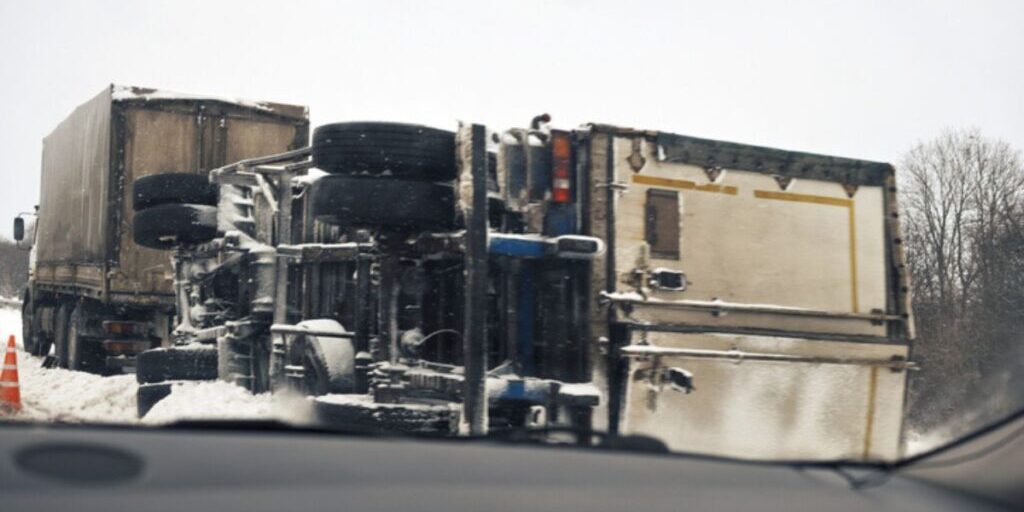
Why Truck Accidents Increase During the Holidays
Holiday Travel SurgeThe holiday season is synonymous with a surge in road traffic, as families embark on trips to visit...

Safety Tips for Early Hour Driving
Check Tire Pressure and Tread DepthEnsuring your vehicle is in top condition is paramount for safe driving, especially during the...

Celebrating Clark DeVere’s Recognition on Central Penn Business Journal’s 2024 Power List for Personal Injury Lawyers
Congratulations to managing shareholder, attorney Clark DeVere, on being named to Central Penn Business Journal's 2024 Power List for Personal...

Metzger Wickersham Names ‘Road To Safety’ Scholarship Winners
Firm Awards More Than $2,200 To Students Advocating Safe DrivingMetzger Wickersham, one of Pennsylvania’s oldest personal injury law firms, announced...

Drinksgiving: The Dangers of the “Funs” Holidays
It’s no secret. Most adult Americans enjoy some occasional alcohol consumption. The majority of Americans also celebrate one or more...

Metzger Wickersham Sponsors I-105’s Fallfest
Firm Joins List of Presenting Sponsors of 32nd Annual Country Music Festival(June 12, 2024, Harrisburg, PA) – Personal injury law...

Elements of a Product Liability Claim
Defining Product LiabilityLegal Framework for Product LiabilityWhen we talk about product liability, we're delving into the realm where the law...

Pennsylvania Bans Hand-Held Devices While Driving: A Landmark Step for Road Safety
On June 5, 2024, Pennsylvania took a significant step towards improving road safety by enacting Senate Bill 37, also known...

Attorney Craig Love Admitted to Maryland Bar
Personal Injury and Workers’ Comp Lawyer Joins Firm Colleagues in Multi-State PracticeMetzger Wickersham announced today that attorney Craig H. Love...

Medical Marijuana Reimbursement and the Injured Worker
The landscape surrounding marijuana legislation has been evolving rapidly across the United States. Pennsylvania, like many other states, has been...

The 100 Deadliest Days of Summer: What You Need to Know to Stay Safe on the Roads
Understanding The 100 Deadliest Days of SummerExplanation of the Term "100 Deadliest Days"The term "100 Deadliest Days" may sound like...

Trucking Accidents: Causes & Liability
Trucking accidents can have devastating consequences, causing severe injuries and property damage. Understanding the causes and liability associated with these...

Mistakes to Avoid After a Car Accident
Being involved in a car accident can be a traumatic experience, and it's crucial to handle the aftermath carefully. Many...

How to Document and Report a Machinery Accident for a Successful Workers’ Compensation Claim
Immediate Steps Following a Machinery AccidentSecuring the Accident SceneWhen a machinery accident occurs, the immediate response can significantly impact both...

Why Construction Accidents Increase During the Summertime
Understanding Seasonal Risks in ConstructionHeat-Related Health HazardsAs the mercury rises, construction sites become a hotbed for heat-related health issues. High...

Signs of Intoxicated Drivers: How to Stay Vigilant During the Holidays
Erratic Lane ChangesOne of the most telling signs of an intoxicated driver is erratic lane changes. Swerving, drifting, or making...

Safety Tips for Driving During the Holiday Season
As the holiday season approaches, many of us are eagerly anticipating quality time with loved ones, festive decorations, and delicious...

Latency Injuries and How They Impact Injury Claims
In the realm of personal injury law, latency injuries, also known as delayed injuries, hold a unique and sometimes perplexing...

What Happens When Winter Weather Impacts a Car Accident?
Winter weather can be tough on the roads, and when it comes to car accidents, it can make the situation...

Attorney Zach Campbell Obtains $450,000 Settlement for Injured Client
Attorney and Shareholder Zach Campbell resolved a claim for his client who suffered severe injuries in a motor vehicle crash....
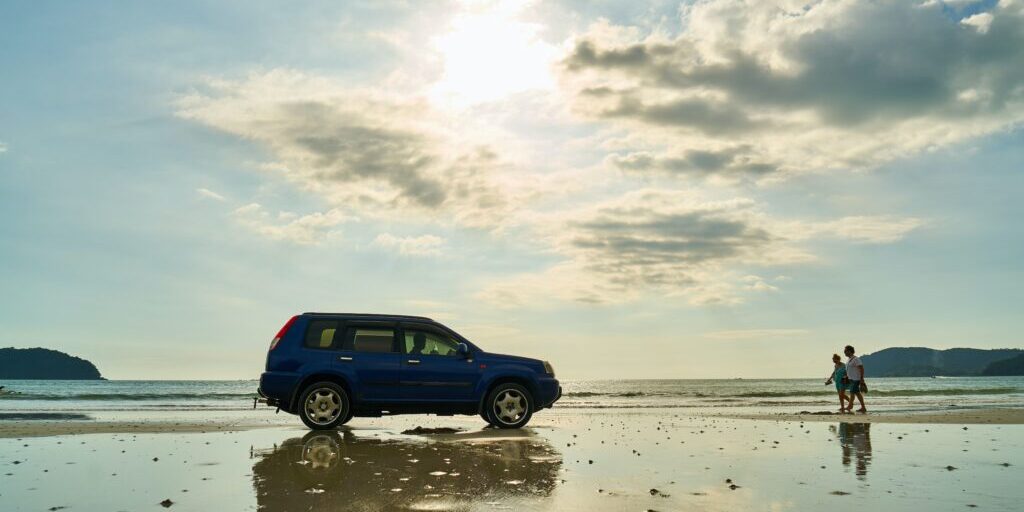
Summer Maintenance Tips for Your Vehicle
When it comes to summer maintenance tips for your vehicle, there are several important steps you can take to ensure...

Pedestrian Accidents and Understanding the Right of Way
Despite the improvements in safety features for vehicles, accidents with pedestrians remain a serious problem. Many times the victims in...

Staying Safe During the 100 Deadliest Days of Summer
As the temperatures rise and schools let out for summer break, families across the country look forward to vacations, trips...

Bicycle Dangers: How Accidents Occur
Bicycle accidents occur due to a variety of factors including negligence, hazardous weather conditions, and inadequate infrastructure. Negligence often occurs...

Lawsuits Mounting for Claims of Hair Straighteners Causing Cancer
A recent government study suggests that frequent use of chemical hair straighteners or relaxers may increase women's risk of developing...

Metzger Wickersham’s Road to Safety Scholarship Contest Open for Submissions
Highlighting the Dangers of Reckless Driving PracticesReckless driving is a serious issue that can have devastating consequences. It is defined...

2023 National Work Zone Awareness Week
In light of the tragedy that occurred on March 22, 2023, Metzger Wickersham would like to draw focus to this...

Join Metzger Wickersham at the 93rd Annual Jubilee Day
We are thrilled to announce that Metzger Wickersham is gearing up to participate in the 93rd edition of the spectacular...

Pennsylvania State Police Reports Independence Day Weekend Crashes
Independence Day is a time where families and friends come together to celebrate with cookouts, backyard games, and fireworks. However,...

How Does Weather Impact Tire Pressure and Potential Accidents?
Cold weather can have a significant impact on tire pressure and the potential for accidents. When temperatures drop, air pressure...

Operation Safe Driver Week to Focus On Speeding
This week is Operation Safe Driver Week throughout North America. The Commercial Vehicle Safety Alliance (CSVA) has designated July 9...

The Different Types of Delivery Truck Accidents
Delivery truck accidents are a common form of accident on our roads, with the large size and heavy loads of...

Rules of the Road: E-Bike, E-Scooter Regulations & the Law
Hot items under many Christmas trees this year were electric scooters and e-bikes. Sales for these modern modes of transport...

Common Motorcycle Accident Causes and Injuries
Motorcycle accidents can be extremely dangerous, often resulting in serious or even fatal injuries. Common causes of a motorcycle accident...

Do You Have to Pay Taxes on Workers’ Compensation Benefits?
Under Pennsylvania law, workers’ compensation benefits are tax free. Pursuant to 26 U.S. Code §104(a)(1),amounts received under workmen’s compensation acts...
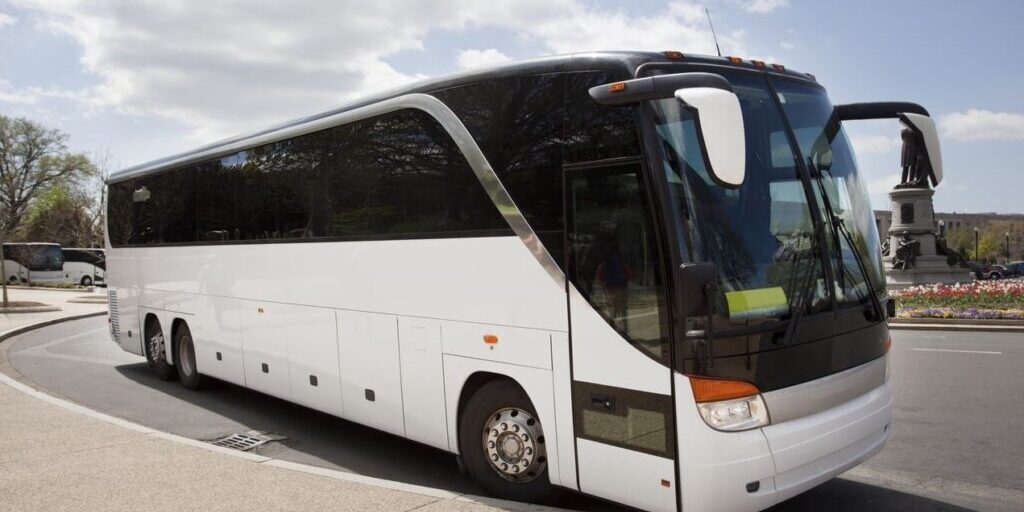
Charter Bus Accident Kills 3, Injures 40+ in Pennsylvania
A charter bus accident killed three people and injured nearly 40 others on August 6, 2023 along Interstate 81 in Lower...

5 Ways to Tell You’re a Responsible Pet Owner
February is Responsible Pet Owner Month, which is a nice way to remind current and soon-to-be pet owners to think...

ATV & Snowmobile Safety â Prevent Childhood Injuries
Snowmobile and ATV outings are a great way to spend time outdoors in the winter. Many families have multiple recreational...

Frederick, Maryland Office Now Open
Metzger Wickersham has been serving clients in Pennsylvania for over 135 years, representing those who have suffered serious injuries and successfully...

3 Types of Distracted Driving You Should Know About
Distracted driving poses a serious and potentially lethal threat to road users. Engaging in activities such as texting, eating, talking...

Troy L. M. Brown, Newly Licensed in Maryland
We are excited to announce that Attorney Troy L. M. Brown has been admitted to the Bar of Maryland. As a personal...

How to Stay Safe on Halloween Night
Are you going to be out and about on Halloween night? Whether you’ll be traveling to a Halloween party or...

Be Bus Aware Stop on Red, Kids Ahead
National School Bus Safety Week is held the third full week of October. It is an educational program and a...
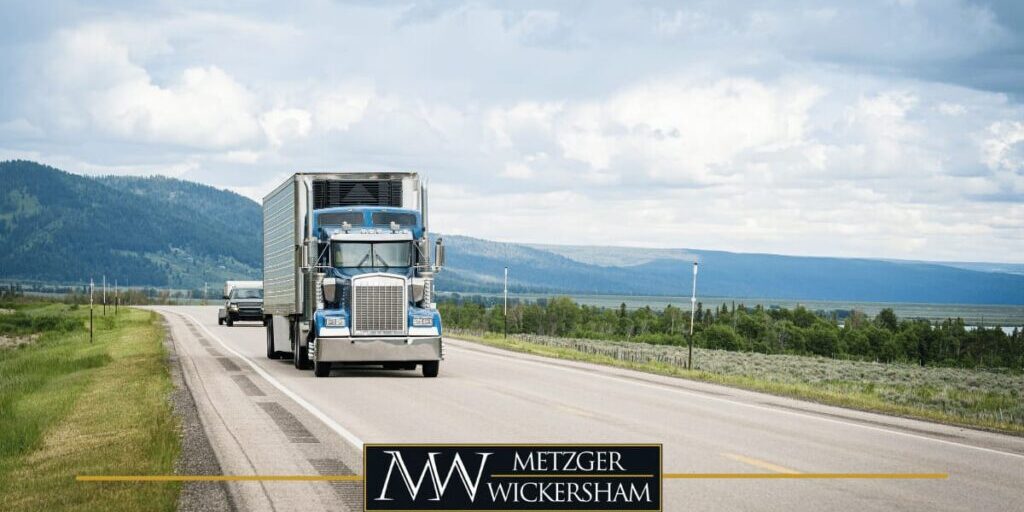
Truck Accident Liability and Your Claim
If you’ve been involved in a truck accident, you may be wondering who is liable for the damages. The answer...

Common Delivery Truck Accident Causes
There are many different types of delivery truck accidents. Some of the most common delivery truck accident causes include: driver...

What You Need to Know About Pennsylvania Car Accident Laws
Throughout the nation, different states implement specific laws regarding car accident claims and who is liable for compensation. In Pennsylvania,...
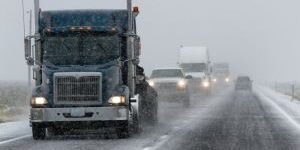
Tips for Avoiding a Traffic Collision During the Holiday Travel Season
Tips for Avoiding a Traffic Collision During the Holiday Travel Season Thanksgiving and Christmas are two of the busiest holiday...

Attorney Andrea M. Staub Is Now a Licensed Personal Injury Attorney in Maryland
Based on her experience, eligibility, and meeting specific requirements, Attorney Andrea M. Staub secured admission to the Bar of Maryland....

Motorcycle Safety Awareness Month
We are now in that wonderful time of year when we can officially put away the snowblower and take out...




